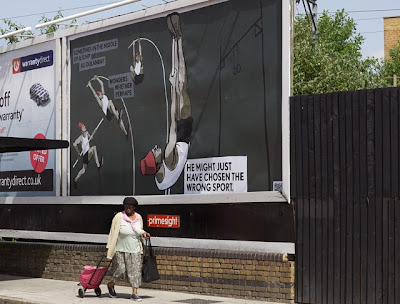In the film, Matt Damon plays a congressman who accidentally sees "behind the curtain," and is made aware of a team of agents whose job it is to keep human beings "on plan." A plan has been written by "The Chairman" and is unquestioned by his minions in fedoras. Well, except by enlightened Anthony Mackie, who eventually helps Damon get the better of the whole Bureau and forces The Chairman to change his/her plan.
In the below scene, the always wonderful Terence Stamp responds to Damon's question about "free will:"
Funnily enough, though, the most persuasive argument in the film is in an early scene, and it argues against the film's point, and even against Stamp's. If Luther (and Stamp) said that we have free will in the things below us but not in the things above us, what are we to make of this?
Now, in the film, this scene is used to illustrate Matt Damon's decision not to be bound by market research anymore, i.e. to make use of his free will. But aren't we all bound by the sort of forces he mentions in his speech? We want to be perceived in a certain way, and so dress accordingly. Even those among us (hippies, punks, goths, etc) who claim to be rebelling against "society's rules" find themselves constrained to think, act, and dress a certain way. I submit that the evidence of our lives suggests that we don't even have free will in those things "below" us. We imagine that our choices of clothing, coffee, and career are free. But think about all the sources (parents, society, friends, goals, etc) of pressure that push us one way or another. Suddenly, our "freedom" begins to reveal what it actually is: an illusion.
The final nail in The Adjustment Bureau's coffin is an ironic one. It is his love for Emily Blunt that compels Damon to continue bucking the Bureau and attempting to make his own way. The Bureau keeps trying to bump him back on plan, and the reason he's so resistant is that he wants to be with Blunt. But he hasn't made a rational free will decision to desire Blunt! No one does! We call it "falling" in love for a reason! It happens to us; it's not chosen by us. And thank goodness it does. As Terrence Stamp's speech illustrates, our track record of rational decision-making isn't great. Perhaps the illusion of free will is preferable to the real thing after all.



